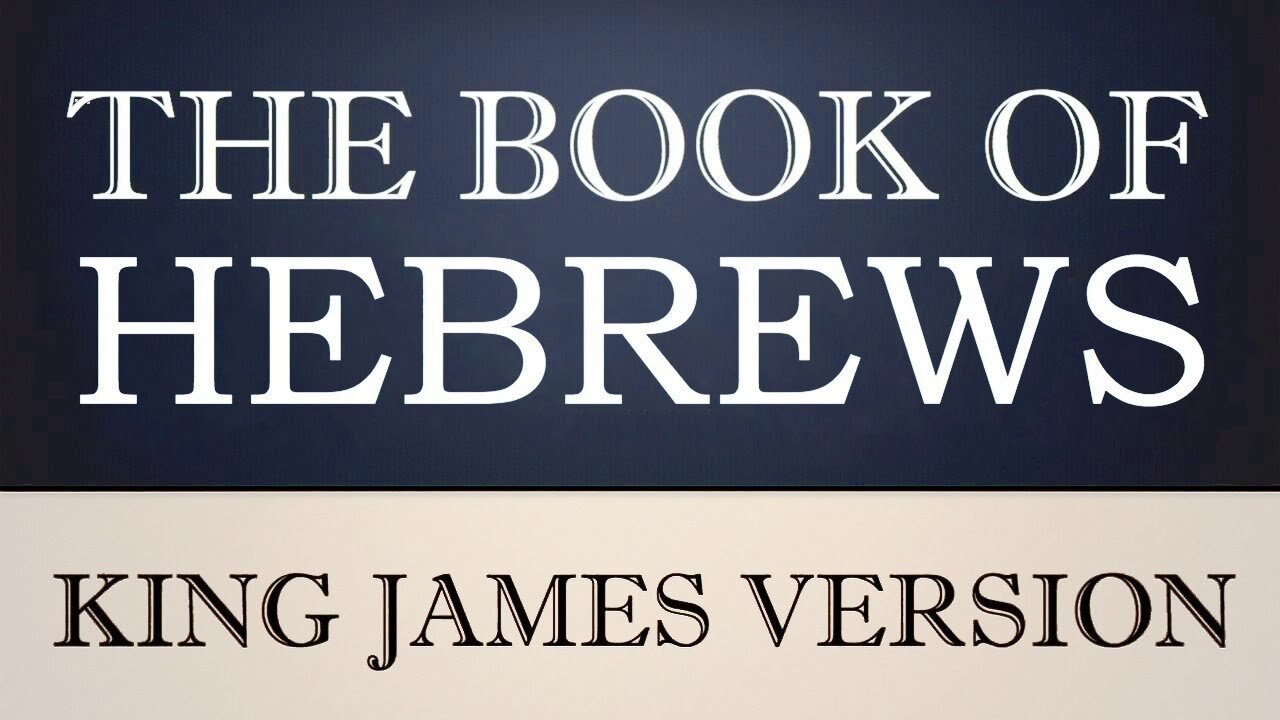Premium Only Content

58) The Book of Hebrews
HEBREWS is primarily a doctrinal dissertation to the Hebrews of the last days. The epistle serves as an amendment to the Mosaic Covenant because a better covenant was established by the death of the Jewish Messiah at Calvary (8:6). The word better occurs thirteen times in twelve verses of the 13 chapters and 303 verses. As the Book of the Acts transferred from Jews to Christians so the Epistle to the Hebrews transferred back to the Jews.
The title of the epistle clearly distinguishes the addressees as the Hebrews of the religion of Judaism (Jer. 34:9; Acts 22:3; Phil. 3:5). The plural pronouns us, we, and our clearly refer to the same recipients of the national prayer for Israel in Matthew 6:9 and the Jewish signs are evident (2:3-4). The time period of the letter is called the last days, which are characterized by an earthly ministry of the Son of God as a King, followed by the destruction of the heaven and the earth (1:2, 8-12; 12:25; Rev. 20). This time period is also called the end because it is the end of the reign of the Devil and the Gentiles (Ezek. 7:2-6; Dan. 12:4-9; Matt. 24:13-21; Heb. 3:14). Devotional instructions for all people may be found throughout the letter, but the epistle primarily discloses doctrinal truths for the Jews during the end times.
It appears that Paul was the author of the letter (13:23; 2 Peter 3:15), but the authorship is not as vital as the inspiration and its preservation by the Holy Ghost. It appears that the Lord allowed Paul to author a letter to the people of his great burden (Rom. 9:1-5). Paul wrote of better things, a better hope, a better testament, better promises, and better sacrifices in order to obtain a better resurrection because of a better Messiah (John 4:22; Heb. 1:1-4).
-
 LIVE
LIVE
Game On!
16 hours ago2025 Sports Equinox Betting Preview!
88 watching -
 32:51
32:51
The Why Files
3 days agoCIA Time Travel Secret | The Grays Are Future Humans
25.1K38 -
 30:13
30:13
Athlete & Artist Show
20 hours ago $4.35 earnedNew Single Game Shots Record!
24.8K1 -
 13:29
13:29
Demons Row
13 hours ago $0.86 earnedThings I Wish I Knew Before Joining a 1% Outlaw Motorcycle Club
9.23K3 -
 22:24
22:24
Jasmin Laine
17 hours agoTrump SLAMS Canada As “Land of PROPAGANDA and Economic COLLAPSE!”
12.5K43 -
 3:52
3:52
Blackstone Griddles
16 hours agoLoaded Tater Tots on the Blackstone Griddle
9.56K7 -
 LIVE
LIVE
BEK TV
2 days agoTrent Loos in the Morning - 10/27/2025
168 watching -
 8:55
8:55
Freedom Frontline
15 hours agoNancy Pelosi PANICS As CNN’s Dana Bash EXPOSES Her Fake Shutdown Lies LIVE
13.2K14 -
 8:43
8:43
Red Pill MMA
19 hours ago5 Reasons Ireland’s New President Is a DISASTER for the Country
9.86K11 -
 8:50
8:50
Dr Disrespect
3 days agoDOC REACTS to Battlefield 6 Season 1 Trailer
199K24